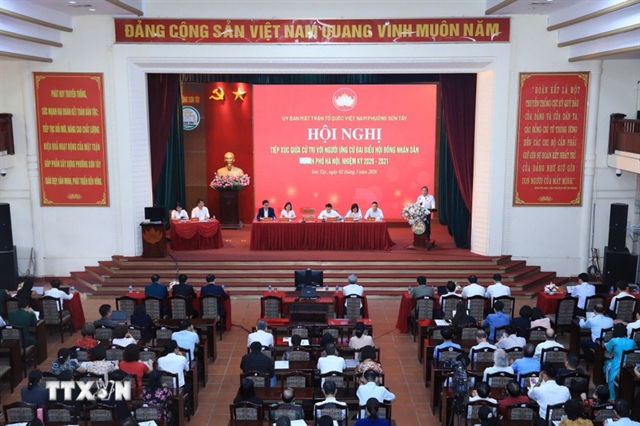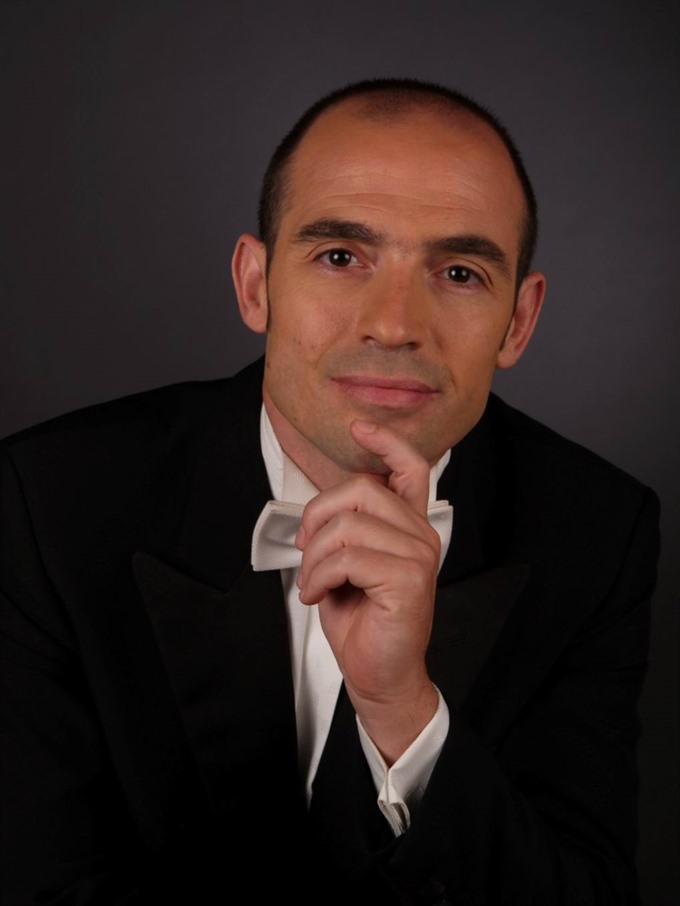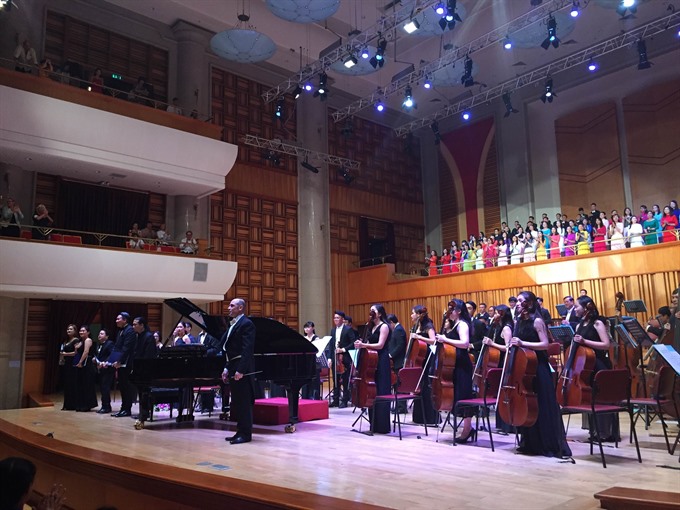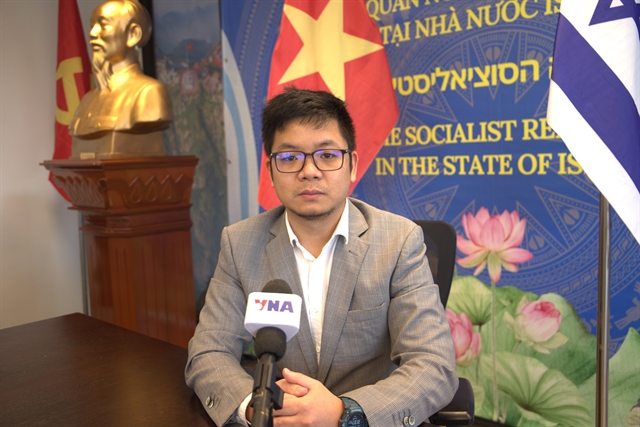 Life & Style
Life & Style

Famed French conductor Henri Pompidor directed a symphony concert with musicians from the Việt Nam National Academy of Music in late October to celebrate the 60th anniversary of its establishment. He talks to Vương Bạch Liên about the concert in Hà Nội and music, in general.
 |
| Attached to VN: French conductor Henri Pompidor.— Photo courtesy of the conductor |
Famed French conductor Henri Pompidor directed a symphony concert with musicians from the Việt Nam National Academy of Music in late October to celebrate the 60th anniversary of its establishment. Prof Pompidor is currently teaching choral singing and conducting the Charles Munch choir at the Conservatory of Paris. He talks to Vương Bạch Liên about the concert in Hà Nội and music, in general.
You were invited to conduct the orchestra of the Việt Nam National Academy of Music. What was your feeling about the work with Vietnamese artists?
Above all, it was a great joy to share with all the musicians and singing students of the National Academy of Việt Nam this celebration of the 60th anniversary of its creation. What a long way since 1956. Generations of students and professors have made the reputation of the school. It is a great honour for me to participate in one of the major musical events that will mark the commemoration. I wish to also thank the Embassy of France and the French Institute in Hà Nội.
I had the chance to meet young enthusiastic and passionate musicians. I could see the excellence of the musical and vocal training in the school and the great quality of education.
During your stay in Hà Nội this time, you also gave a master class of choral conducting to some students. What skills must these future musicians learn?
The training of a chorus master, like a conductor of an orchestra, is very long and difficult. The job of “a master” can not be conceived like a ubiquitous authoritarian leader who rules the orchestra or the chorus.
The leader of today is defined as a musician in the service of his colleagues. His role is to provide instrumentalists or singers with a work course in which everyone can flourish and express their talents.
Aesthetics is the result of a collective effort. Thus, the very nature of musical training does not actually involve learning the various movements, but namely creating the conditions for a single social group.
To be more precise in the answer to your question, I think that besides the necessary acquisition of a solid musical and artistic training, a chorus master has to be, above all, curious about others. He must learn to better know the musicians in their dimensions, both individual and collective.
He must also learn to create – and maintain – a team in which he gradually builds the musical project, designed here as a social project.
These are the attributes that make management skills today of conductors and choir leaders.
Your first came to Việt Nam in 2012. It seems that you have given numerous master classes in the country over the last years. Are there difficulties of language and understanding among such different cultures?
Yes of course, cultural differences are there
But I think these differences are not difficulties, but assets for art.
I think communication through language takes time, patience and commitment. One has to listen and try to understand what the other says or does not say.
Besides, the music in its double form of sound and silence is a form of language that exceeds the nature of words.
It allows to show – and especially to hear – beauty in its purest state.
It has the power "to describe the ineffable" (Jankélévitch), that is to say, to go further than words, syntax and languages themselves.
Again, the music is just for any group another means to create social bonds without having the use of a common language, a common culture. Besides, you know at the final concert, a lot of decisions on interpretation of works were made by all the singers and musicians without us having to discuss it verbally.
On your website www.henripompidor.com that I recommend to our readers, you mention the following quote: "Music is a higher revelation than all wisdom and philosophy... ". Has music brought you as much as all that?
This quote from Ludwig van Beethoven is very interesting.
It gives us an idea of the purity and depth of feeling that music generates in living things.
Personally, if I had to tell you what music has brought to my life, I would say it allowed me, first of all, the encounter with others: men and women of every age and social background who have shared one of the many musical moments of my life.
This past week at the Academy was not simply a job without personal gain.
Through numerous exchanges with young students and my fellow teachers at the Academy, I could again enrich the knowledge and repertoire diversity with new and unique interpretations.
Do you have plans to come back to Việt Nam?
Yes, of course, I have a strong attachment to this country and to all those musicians that I know better and better. The musical projects will help us develop the exchanges between French music and Vietnamese musical compositions. — VNS
 |
| Serves musicians: Famed French conductor Henri Pompidor directed a symphony concert with musicians from the Việt Nam National Academy of Music to celebrate its 60th anniversary.—Photo courtesy of Henri Pompidor |




